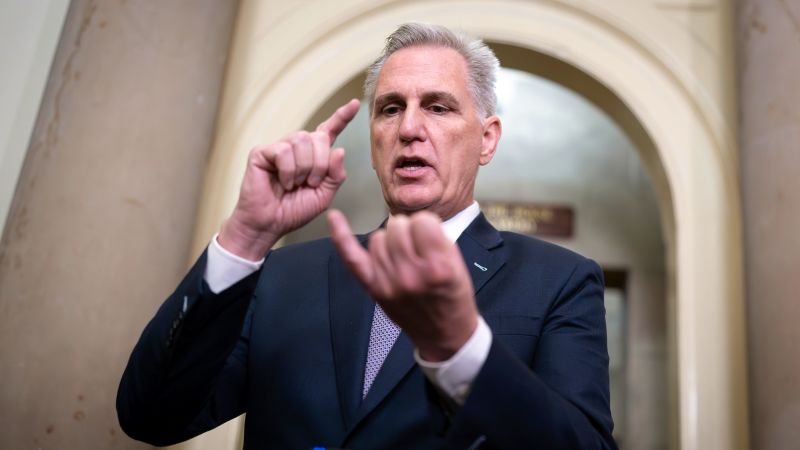With only three days to go before government funding expires, Congress is barreling toward a shutdown with the House and Senate at an impasse over a path forward.
The Senate is working to advance a bipartisan stopgap bill that would keep the government open through November 17 and provide additional aid to Ukraine and disaster relief. But House Speaker Kevin McCarthy has so far dismissed that bill and is instead gearing up to have his chamber vote on a GOP stopgap bill with border provisions, though it’s not even clear that will have enough Republican votes to pass in the House.
As the September 30 shutdown deadline rapidly approaches, the federal government has begun preparing for its effects.
A shutdown could have enormous impacts across the country, in consequential areas ranging from air travel to clean drinking water, as many government operations would come to a halt, while services deemed “essential” would continue.
The nearly 4 million Americans who are federal employees will feel the effect immediately. Essential workers will remain on the job, but others will be furloughed until the shutdown is over. None will be paid during the impasse. For many, a shutdown would strain their finances, as it did during the record 35-day funding lapse in 2018-2019.
Democratic and Republicans alike have been highlighting the potential impacts of a shutdown as they warn against a lapse in funding.
“It’s important to remember that if we shut down the government – for those of us who are concerned about the border and want it to be improved – the border patrol … have to continue to work for nothing,” Senate Minority Leader Mitch McConnell said at a news conference Wednesday.
US Border Patrol agents are considered essential and will continue to perform their law enforcement functions, including apprehending migrants crossing the border unlawfully, during a government shutdown – but without pay.
The White House is sounding alarms about massive disruptions to air travel as tens of thousands of air traffic controllers and Transportation Security Administration personnel work without pay. During the 2019 shutdown, hundreds of TSA officers called out from work – many of them to find other ways to make money.
The White House has warned that a shutdown could risk “significant delays for travelers” across the country.
The White House has also warned of impacts to national security, including the 1.3 million active-duty troops who would not get paid during a shutdown.
As the Senate works to advance its bipartisan bill, it’s not yet clear when a final vote can take place in the chamber.
GOP Sen. Rand Paul of Kentucky has said he will slow walk any bill with additional Ukraine funding. Without the consent of all 100 members to speed up the time it takes to consider the bill, it’s not clear whether the chamber could pass the measure before the shutdown deadline.
The House is expected to vote on a GOP stopgap bill on Friday, though nothing has been scheduled as of yet.
In the meantime, the chamber has been working through debate and amendments on a series of spending bills. It is not yet clear if any of these bills will be able to pass, potentially setting up another chaotic showdown on the House floor. Even if those spending bills did pass, however, they would be dead on arrival in the Senate.
Read the full article here





